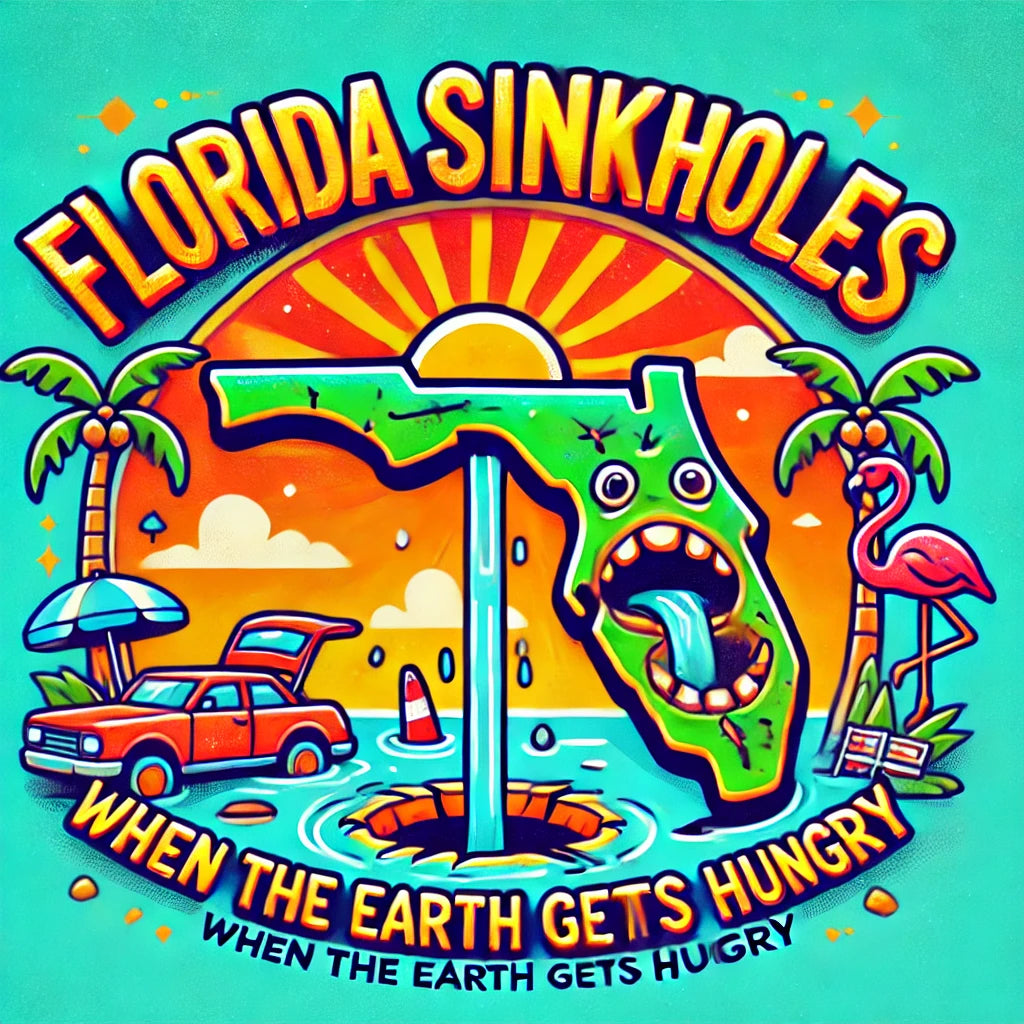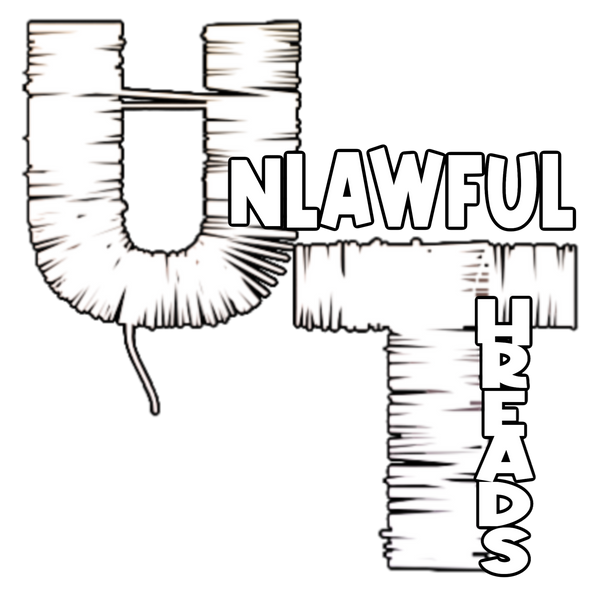
Florida: Where the Ground Likes to Swallow Stuff
Share

Florida, my fellow Sunshine Staters, is a magical place where the beaches sparkle, the gators smile (sometimes with a little too much enthusiasm), and the ground occasionally decides to eat things. Yes, we’re talking about sinkholes, Florida’s unique way of saying, "Surprise!"
If you’re new to Florida, you might think a sinkhole is a quaint little pond forming in someone’s yard. No, friend. A sinkhole is Mother Nature’s equivalent of a trapdoor. One minute, you're grilling burgers on your back patio; the next, the patio is gone. And also the grill. And possibly your car. This is why Floridians are always on edge when their lawn starts to look slightly... sunken.
What Causes Sinkholes?

Sinkholes happen when water erodes underground limestone, which Florida has a lot of because this state is basically a giant Swiss cheese. When the limestone erodes, the ground above collapses, creating a hole. Sometimes it’s a little hole, and sometimes it’s a hole that swallows an entire building. (This happened in 2013, when a sinkhole opened up beneath a man’s bedroom in Seffner. You can read about it here.)
Why Florida?
Because Florida is special. Also because much of the state sits on a layer of karst—science-speak for “rock that dissolves faster than your New Year’s resolutions.” Add a rainy climate, some overzealous groundwater pumping, and a dash of gravity, and voilà! Sinkhole stew.
According to the Florida Department of Environmental Protection, Florida has more sinkholes than any other state. (Cite: FDEP) This is partly because we’re constantly pumping groundwater for irrigation, drinking water, and keeping golf courses unnaturally green in July.
Can a Sinkhole Happen in Your Yard?
Yes! And that’s the exciting part—you never know when. Sinkholes love Florida so much that there’s a sinkhole alley in the central part of the state. If you live in Pasco, Hernando, or Hillsborough counties, congratulations! You’re in the sinkhole capital of America. Some homeowners even buy sinkhole insurance because, here in Florida, you don’t just worry about hurricanes; you also worry about the planet eating your house.
How to Spot a Sinkhole Before It Spots You

Sinkholes can give you warning signs, like cracks in walls or doors that won’t close. Of course, these are also symptoms of living in a house built during Florida’s mid-century building boom, so good luck figuring it out.
Pro Tip: If your lawn suddenly looks like it’s attempting to do a belly flop, call a professional. Don’t poke it with a stick. This is Florida—there might also be an alligator in there.
Fun Sinkhole Stories
Florida’s sinkholes don’t just target boring stuff like dirt. No, they have a flair for drama. A sinkhole once swallowed a Corvette dealership in Bowling Green, though that’s technically in Kentucky. But we Floridians still claim it because, let’s face it, it feels like Florida energy. Another sinkhole in Winter Park turned into a lake that now has fish and paddleboats, proving that in Florida, even disasters get repurposed.
Sinkhole Tourism (Yes, It's a Thing)

If you're feeling brave, you can visit Devil’s Millhopper Geological State Park in Gainesville. It’s a giant sinkhole you can walk into without worrying about your SUV disappearing. It’s a Florida State Park, so you know it’s safe-ish. Learn more at Florida State Parks.
Sinkholes are like the Florida Man of geology: unpredictable, chaotic, and occasionally entertaining as long as they’re not happening in your front yard. They’re a reminder that living in Florida is an adventure, whether you’re dodging hurricanes, arguing with iguanas, or trying to keep your house out of a hole.
So, next time your neighbor’s yard starts to look a little suspicious, just smile, crack open a cold one, and say, "Welcome to Florida."
Stay safe, stay on solid ground, and maybe invest in some sinkhole insurance.
